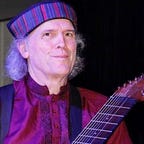The Fall and Rise of Forbidden Language
Bob Fosse’s Film about Lenny Bruce contains one of Bruce’s routines in which he used the N-word, followed by every other racial/cultural epithet for Jews, Italians, Poles etc. Bruce then argued that if we are willing to use these words we can rob them of their power. Bruce got jailed for this attitude in the 50s. This made him a secular saint in 60s, when many of us believed that true freedom was achieved only by saying the unspeakable, and showing the unshowable. George Carlin and Richard Pryor were considered to have an equal right to use the N-word. John Lennon wrote a song with the N-word in the title. When R. Crumb, Ralph Bakshi and the National Lampoon made cartoons containing racist caricatures, this was seen as a way of ridiculing racists. Many of us believed at the time that there was something like a moral obligation to acknowledge that a joke was funny, even when it was racist or sexist or cruel, or just disgusting. The ability to laugh at what were called “Sick Jokes” was seen as a kind of authenticity or integrity. It reflected the ability to own and acknowledge even the darkest parts of your personality.
Perhaps wokeness is the children of the Hippies rebelling against the outspokenness of their parents. These things do happen in cycles. The Victorian era was a similar rebellion against the sensuality of the 18th century. This time around, however, the banned words are usually racial not sexual. Once TV couples had to sleep in separate beds, now Netflix and HBO are filled with fucking, both the word and the action. But Racism…
